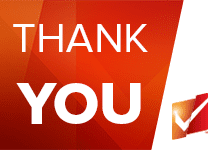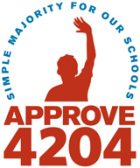Education Advocate January 2016

|
|
|||||
Building a quality public education system from cradle to career.

|
|
|||||
By Jene Jones, Government Relations

There is general bi-partisan agreement on 2 things: 60 days to adjournment, in order to raise money and campaign for elections starting on day 61, and there will be budget adjustments for wildfire costs last summer and some caseload increases for social services this year. Beyond that, priorities differ.
The Senate is coming out strong saying there will be a Charter patch that funds the existing Charter schools which converted to ALE, Private, and Homeschool models mid this year, in order for them to continue to serve students who started in those schools in the fall. The family voice has been loud; students have been telling their stories of how their learning needs are being met, they feel like they belong, have choice, and are succeeding at their public Charter schools.
There is a McCleary bill that will obligate the state to fully take on compensation for staff at the state level by the end of the 2017 session. In order to show progress toward the court deadlines, the bill will probably pass this session. The funding for this however, is not a part of the prescribed plan. With 60% of voters telling the legislature they want 2/3 votes in both the House and the Senate to raise taxes through Eyman’s initiative 1366 which passed in November, even in the Legislative districts of 20 Democrat members in the House, tax increases for McCleary will be a tough vote to bring to the floor. In addition, if lawmakers do nothing with I-1366 (asking for a 2/3rds vote in House & Senate to raise taxes), starting on April 15, 2016 sales tax will lower by 1%, and the state will lose a billion dollars every year to the general fund, which funds education. (I-1366 is being legally challenged.) As perspective: The transportation package which passed last year did not have 2/3 vote in the House. 2/3rds votes are hard in a legislature with: 73 Rs, 73 Ds, and one D that caucuses with the Rs.
Policy for education will include other robust discussions in 2016: 1. Individualizing student pathways and addressing the Skills Gap through Career Tech coursework in Junior High and High Schools, and 2. Assessment and if it should remain linked to graduation requirements (HB 2214). For schools: How do you use the assessment results to meet the learning needs of your students, and assure all graduates are career/college ready?
Let’s focus 2016 on students. Student needs. Student outcomes. Student choice.
The Washington State Supreme Court issued a devastating ruling late on Friday afternoon, prior to a 3-day weekend and after charter schools had already started their year, declaring the way the state funds public charter schools unconstitutional.
The ruling puts the immediate future of over 1200 students in jeopardy. In addition to public charter schools, the ruling may impact tribal compact schools, Running Start, and other programs that do not fit into the Court’s narrow view of what can be funded with education dollars. Many strategies aimed at addressing the state’s achievement and opportunity gaps are at risk.
The parents with children in these schools, and the advocates who support them, will continue to work to ensure these schools stay open now and into the future.
You can help by contacting your legislator and asking them to support a technical fix to ensure public charter schools are funded and other investments aimed at closing gaps continue now and into the future.
At the League of Education Voters (LEV), we recognize all of the hard work that you do toward improving public education across Washington state. We are pleased to announce our Activist of the Month for September: a student group called the Ambassadors of Lakeview Achieving Success, or ALAS. Read more about ALAS’ work to engage their community.

Students from Ambassadors of Lakeview Achieving Success (ALAS)
Maite Cruz testified for the first time ever this summer at the State Board of Education meeting in July. A rising tenth grader, Maite says she was “unbelievably nervous” but was determined to speak up about the importance of setting graduation requirements at a college-ready level (a level ‘3’ cut score) for Smarter Balanced assessments. She learned about the opportunity to testify after meeting League of Education Voters Community Organizer Ruvine Jiménez at aPasco Discovery Coalition meeting.
In her testimony, Maite asked the board: “If our own state doesn’t have confidence that we can achieve a ‘3,’ how will we ever have confidence in ourselves that we can succeed?” The State Board ultimately voted to set the cut score mid-way between a ‘2’ and a ‘3,’ but Maite’s testimony moved them. Later that same evening, Maite had the opportunity to sit next to Board Chair Isabel Muñoz-Colón at dinner, who expressed her gratitude for Maite’s testimony.
Along with Maite, her friend Diana Alonso also testified. Both Maite and Diana are members of a student organization, Ambassadors of Lakeview Achieving Success (ALAS). ALAS formed about four years ago, and Maite says her older brother was one of the founding members when he was in high school. The goal of the group is to grow community engagement in education and cultural events.
When they initially formed the group, ALAS members didn’t want to have any leadership roles—they wanted all of the members to have an equal voice. That turned into one of their “biggest challenges,” says Maite, because it made it much more difficult to stay organized. They ultimately changed their mind and created various roles within the group, with Maite taking on the role of president.
ALAS holds multiple events throughout the year, and one of their biggest events is a week-long summer camp for students in grade K–6. The camp is offered in English and Spanish and is organized entirely by the fifteen teenagers comprising ALAS. This year, ALAS enlisted the help of student teachers from Washington State University’s Tri-Cities campus, and they provided curriculum for the week.
Each day of the summer camp had a theme. One day, for example, was “Volcano Day,” and the students learned about, and made their own, volcanoes. Students attended the camp, which included lunch and snacks throughout the day, at no cost. This year was the third year of offering a camp; last year’s camp was covered in the Tri-City Herald.
Going forward, Maite says ALAS wants to make a more concerted effort to engage all members of the community, in addition to students. They recently held a community “café event” for 16 families that both parents and students attended. The parents loved the event and enjoyed discussing community-wide concerns and issues. The Pasco School Board President attended the event, as well, and responded positively to the community voice.
ALAS is also planning an event in September in honor of Mexican Independence Day, and they are partnering with a health organization in October for Breast Cancer Awareness Month.
And Maite? She says she’s not sure what she wants to do after high school yet, but she does know that she really wants to help out her community and give back to them in the same way that they have supported her.
 The work that we do to improve public education is only possible thanks to the support of our activists and advocates—the parents, community members, students, and teachers who stand up and speak up. In order to recognize the difficult work that so many of our supporters do on behalf of all Washington students, the League of Education Voters began spotlighting the work of our “activists of the month” in late 2013.
The work that we do to improve public education is only possible thanks to the support of our activists and advocates—the parents, community members, students, and teachers who stand up and speak up. In order to recognize the difficult work that so many of our supporters do on behalf of all Washington students, the League of Education Voters began spotlighting the work of our “activists of the month” in late 2013.
Our activists of the month were selected for going above and beyond in their work for Washington students—in organizing, in testimony, in advocacy, and more. Before we break for the summer, we wanted to draw your attention to these activists once more. Read More
In what has become unfortunately common in Washington, the 2013 legislative session went into overtime. An agreement on a two-year budget was reached with less than 24 hours to spare to avoid a shutdown of state government. While significant hurdles remain as we strive to ensure our public education system is amply, equitably and sustainably funded, measurable progress was made during the extended 2013 session.
The legislature and the Governor were faced with competing requirements and political trends. Our state’s constitution required increased investment in K-12 education. And while I-1053 was ultimately ruled unconstitutional, the voters of Washington state have consistently sent a strong message that any tax increases must have 2/3 majority support in the legislature. The legislators were charged with increasing investment in K12, without broad based revenue increases, and avoiding cuts to other areas of education or essential social services.
On that score you have to say the session was a mild success. As a state, we expanded investment in early learning, brought a modicum of stability to the Working Connections Child Care program, increased investment in K-12 with an intense focus on the opportunity gap, and stopped the crippling cuts to higher education. We did all of this without cannibalizing essential social services. While it took longer than was needed, the outcome reflected the values of the voters who sent the legislators to Olympia to represent them.
In addition to the budget items, significant bipartisan efforts on education policy were passed (See LEV 2013 legislative accomplishments). Legislation related to addressing customer service issues in child care, supports for persistently failing schools, literacy, STEM education, gathering and reporting of discipline data, and assessment reforms all passed with significant bipartisan support.
As we move forward, LEV will continue to work with parents, members of both parties, and members of the education community to address the continuing challenge of providing ample, equitable and stable funding and ensuring those dollars are invested effectively to ensure that every student in Washington state receives an excellent public education that provides the opportunity for success.
 You did not see that headline last week, but you should have.
You did not see that headline last week, but you should have.
You may have read reports about levies in a particular district or county, but there was precious little attention paid to what happened all across the state. What happened was that voters overwhelmingly supported their local schools and voted for $2.6 billion in taxes to support education.
Let’s say it again: Voters overwhelmingly supported their local schools and voted for $2.6 billion in taxes to support education.
Out of 295 school districts, 157 went to their local communities seeking support to the tune of over $2.7 billion dollars in property taxes. Out of the 157 school districts that put levies on the ballot, 152 of them passed. In a time where we hear that voters will not support revenue, the local election results stand in stark contrast to that narrative.
In most cases, local dollars make up around 25% of the total operating costs of a school district. We are a far cry from local levies being about the “extras” they were originally designed to provide. As the economic crises drags on, the importance of local levies has increased. Local communities have responded to that crisis with overwhelming support for their schools.
Simple Majority, the gift that keeps on giving
It seems odd, but Washington state has a fondness for requiring super majorities when it comes to revenue. It used to be that local schools had to receive more than 60% of the vote to secure a local operating levy. Thanks to Simple Majority (also known as I-4204, passed in 2007) we returned to the most basic of democratic principles, majority rules. That means that 51 levies representing $1.2 billion have passed because of Simple Majority. That is $1.2 billion to support the students in those districts that they otherwise would not have received.
Our support for majority rule extends to the state Legislature, where the law currently requires two-thirds majority to raise revenue. The I-1053 lawsuit, which we filed along with the Washington Education Association and other plaintiffs in October, will have its first hearing in March. We hope that the combination of the McCleary ruling and the eventual ruling on I-1053 will clear the way to fund our schools at the level they need, and local voters seem prepared to support.